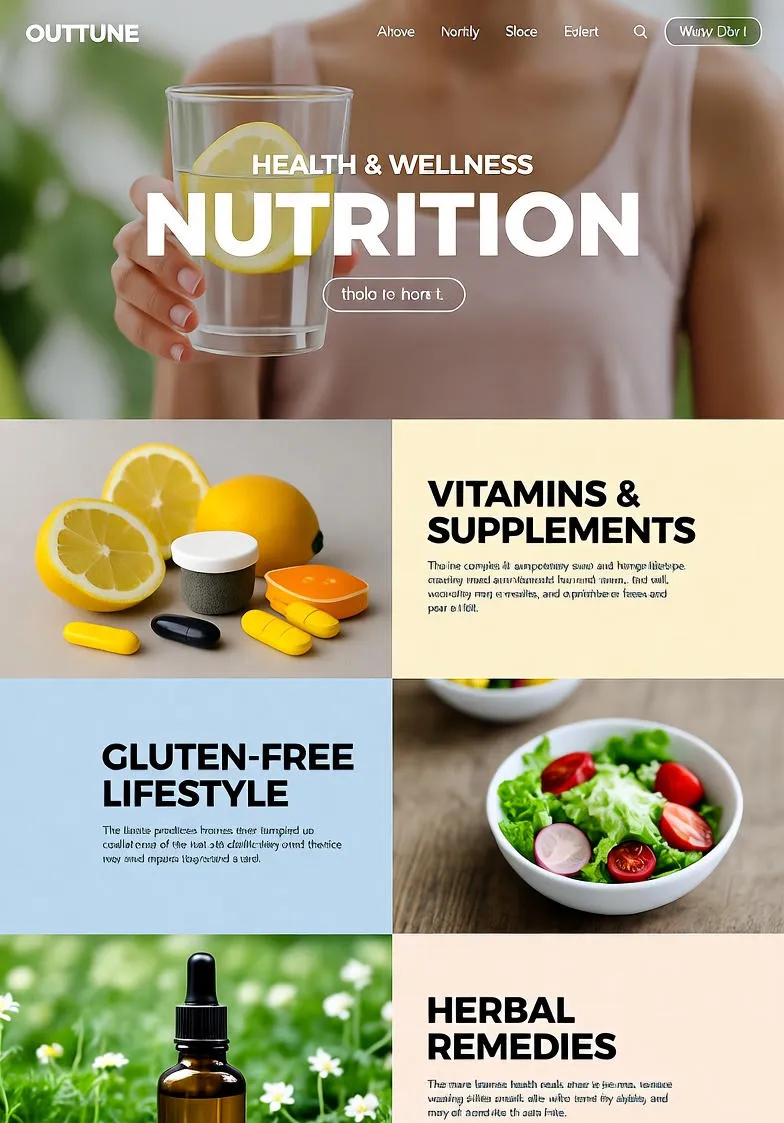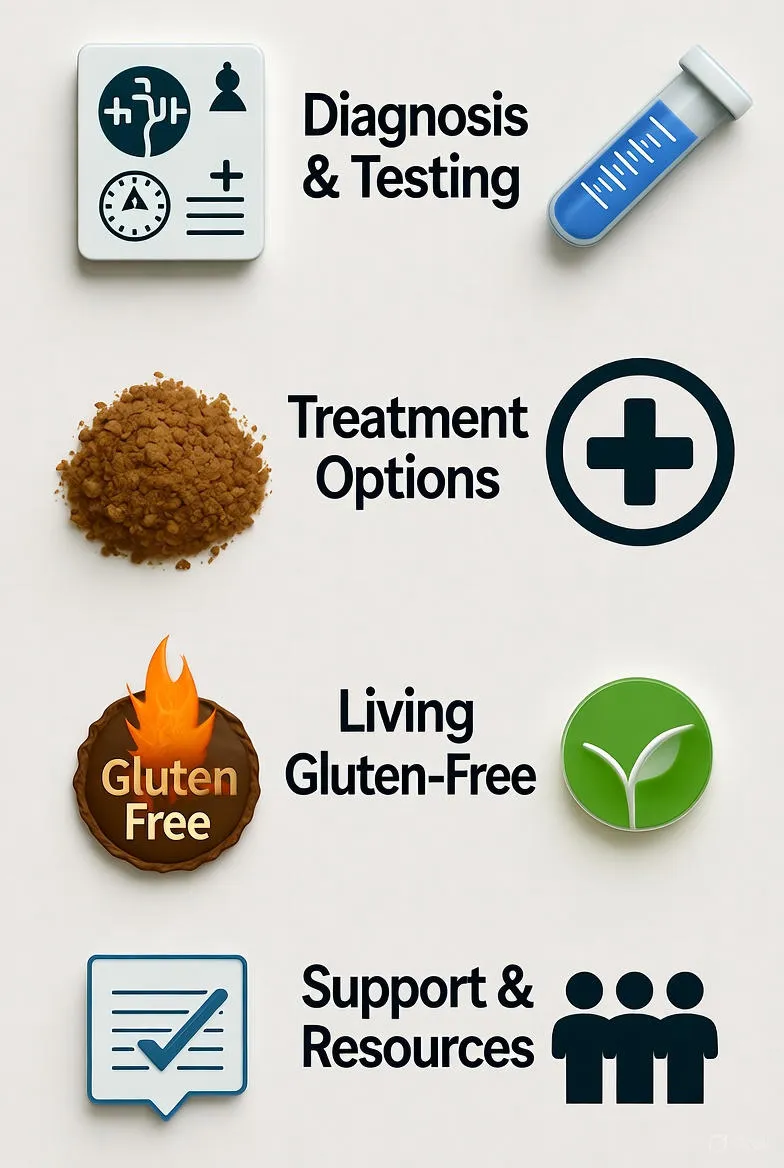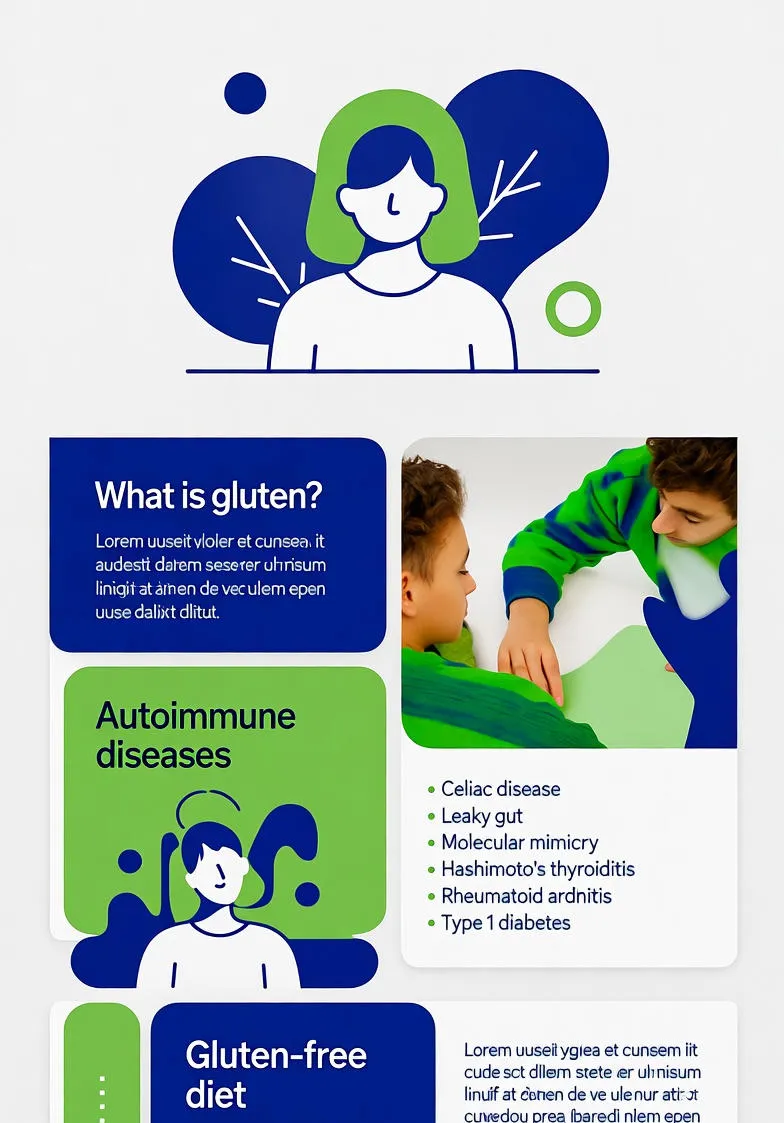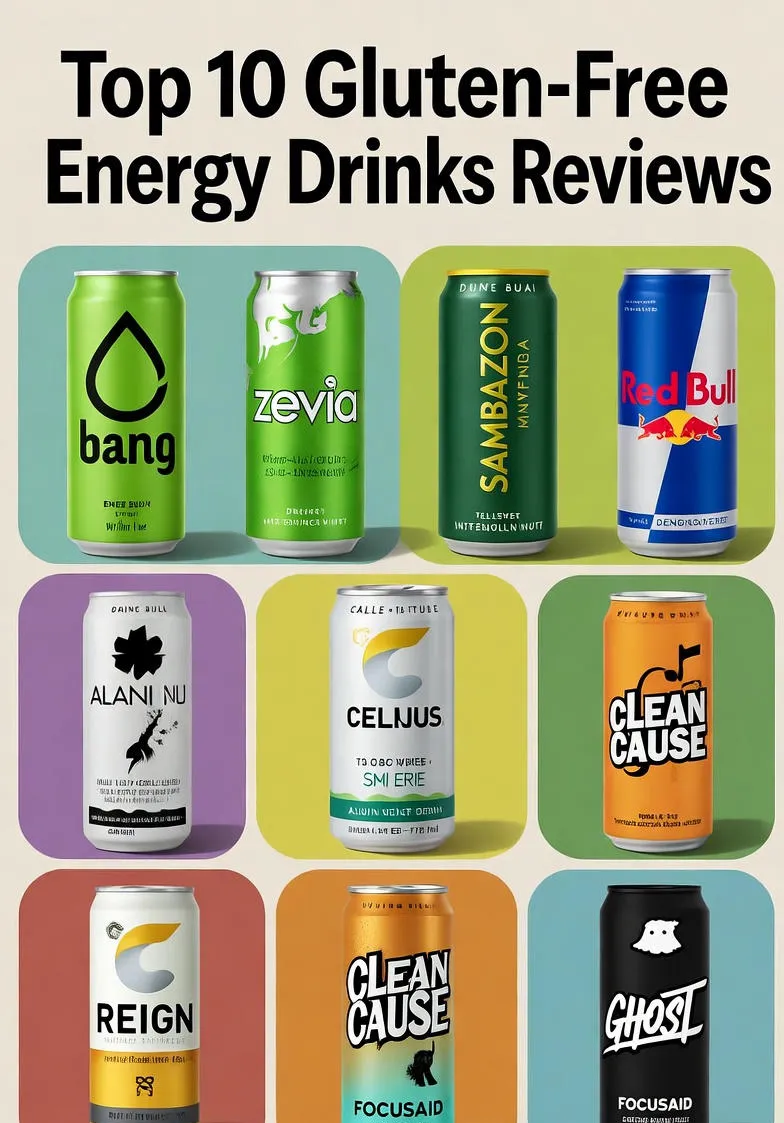Top 10 Gluten-Free Supplements for Better Health in 2025
Explore the top 10 gluten-free supplements for 2025 to combat nutrient deficiencies and boost health on a gluten-free diet. Expert-recommended picks for energy, gut, and bone support.

Introduction to Gluten-Free Living and Nutrition
Adopting a gluten-free diet is a transformative step for many people dealing with celiac disease, gluten sensitivity, or simply choosing to avoid gluten for better digestive health. However, while eliminating gluten from your meals can alleviate symptoms like bloating, fatigue, and joint pain, it often comes with a hidden challenge: nutrient deficiencies. Grains like wheat, barley, and rye, which contain gluten, are commonly fortified with essential vitamins and minerals. When you remove them, your body might miss out on key nutrients unless you make a conscious effort to replenish them.
This is where gluten-free supplements step in as invaluable allies. They help bridge the nutritional gaps, supporting everything from energy levels to immune function. In this comprehensive guide, we'll explore the top 10 gluten-free supplements that can elevate your health in 2025. These selections are based on expert recommendations, scientific insights, and real-world benefits for those on gluten-free paths. Whether you're newly diagnosed with celiac or a seasoned gluten avoider, these supplements can make a world of difference.
Understanding Nutrient Deficiencies on a Gluten-Free Diet
A gluten-free lifestyle demands vigilance. The intestinal damage caused by gluten in sensitive individuals—known as villous atrophy in celiac disease—impairs nutrient absorption. Even after healing on a strict gluten-free regimen, the switch to alternative foods like rice, corn, or nuts doesn't always provide the same level of fortification. Studies show that up to 50% of people with celiac disease suffer from deficiencies in iron, vitamin D, and B vitamins upon diagnosis, and these risks persist without intervention.
Beyond absorption issues, gluten-free products are often processed and may lack the natural nutrient density of whole grains. This can lead to fatigue, weakened bones, anemia, and compromised immunity. Supplements aren't a substitute for a balanced diet rich in fruits, vegetables, lean proteins, and gluten-free whole foods, but they act as a safety net. Consulting a healthcare provider or registered dietitian is crucial to tailor supplementation to your blood work and lifestyle, ensuring you avoid over-supplementation.
The Top 10 Gluten-Free Supplements
We've curated this list focusing on versatility, efficacy, and accessibility. Each supplement is widely available in certified gluten-free forms from reputable brands. Look for third-party certifications like NSF or GFCO to guarantee purity and absence of cross-contamination.
1. Multivitamins: Your Daily Foundation
Multivitamins are the cornerstone of any supplement routine, especially on a gluten-free diet. They deliver a broad spectrum of essential vitamins and minerals in one convenient dose, addressing multiple deficiencies at once. Opt for formulations with bioavailable forms, such as methylfolate instead of synthetic folic acid, to enhance absorption.
Benefits include boosted energy, improved cognitive function, and overall vitality. For instance, a high-quality gluten-free multivitamin can prevent the B-vitamin shortfalls common in gluten avoiders, supporting red blood cell production and nerve health. Brands like Country Life Vitamins offer NSF-certified options that are rigorously tested. Take one daily with a meal to maximize uptake, and pair it with food to avoid any stomach upset.
2. Probiotics: Guardians of Gut Health
Your gut microbiome takes a hit from gluten-related inflammation, and probiotics help restore balance. These beneficial bacteria promote digestion, reduce leaky gut symptoms, and enhance nutrient absorption—key for healing the intestinal lining.
Choose strains like Lactobacillus and Bifidobacterium, proven to alleviate bloating and irregularity in celiac patients. A daily probiotic can also bolster immunity, warding off infections that exploit a weakened gut barrier. Garden of Life's shelf-stable options are excellent gluten-free choices, with 50 billion CFUs for robust support. Start with a lower dose if you're new to probiotics to allow your body to adjust.
3. Vitamin D: Sunshine in a Capsule
Vitamin D deficiency affects nearly 80% of celiac patients due to malabsorption and limited sun exposure in modern lifestyles. This fat-soluble vitamin is vital for calcium absorption, bone density, and mood regulation—countering the depression often linked to gluten intolerance.
Supplementing with 2,000-5,000 IU daily can normalize levels, reducing osteoporosis risk and fatigue. Liquid drops or softgels from Solgar provide easy, gluten-free dosing. Get your levels tested annually, as excess can lead to toxicity. Combine with vitamin K2 for optimal bone health synergy.
4. Iron: Combating Anemia
Iron deficiency anemia plagues up to 40% of those on gluten-free diets, stemming from poor absorption and blood loss in severe cases. Gentle, chelated forms like iron bisglycinate minimize gastrointestinal side effects while effectively replenishing stores.
This mineral fuels oxygen transport, energy production, and immune resilience. Women, in particular, benefit from consistent intake to offset menstrual losses. Cooper Complete's gluten-free iron supports red blood cell formation without the constipation woes of traditional ferrous sulfate. Consume with vitamin C-rich foods to boost absorption, and avoid tea or coffee nearby, as they inhibit it.
5. B-Complex Vitamins: Energy and Nerve Support
The B-vitamin family—B6, B9 (folate), and B12—is often depleted in gluten-free eaters because fortified cereals vanish from the menu. These water-soluble vitamins drive metabolism, DNA synthesis, and neurotransmitter balance, staving off fatigue, brain fog, and mood dips.
A B-complex ensures comprehensive coverage, with active forms like methylcobalamin for B12 enhancing bioavailability. Rainbow Light's clean, food-based formulas are gluten-free and gentle on the stomach. Ideal for vegetarians or those with absorption issues, take in the morning to harness their energizing effects throughout the day.
6. Magnesium: The Relaxation Mineral
Magnesium deficiency exacerbates muscle cramps, anxiety, and sleep disturbances common in gluten-sensitive individuals. It plays roles in over 300 enzymatic reactions, from protein synthesis to blood sugar control.
Glycinate or citrate forms are highly absorbable and gluten-free, promoting calm and better rest. Solgar's chelated magnesium aids bone health alongside vitamin D. Aim for 300-400 mg daily, split doses if needed, and note its laxative potential in higher amounts—perfect for constipation relief.
7. Zinc: Immune and Skin Savior
Up to 50% of newly diagnosed celiacs lack zinc, crucial for immune cell production, wound healing, and taste perception. It also curbs inflammation, a hallmark of autoimmune responses.
Gluten-free zinc picolinate or lozenges from Thorne Research deliver quick results, enhancing resilience against colds and supporting skin integrity. Pair with copper to maintain balance, as long-term zinc can deplete it. Daily doses of 15-30 mg suffice for most adults.
8. Calcium: Building Strong Bones
Calcium teams up with vitamin D to fortify bones, countering the osteoporosis risk heightened by celiac malabsorption. Dairy alternatives often fall short, making supplementation essential.
Citrate forms absorb well without food, and gluten-free options from Nature Made include vitamin D for synergy. Women post-menopause especially need 1,200 mg daily. Spread intake to avoid overload, and incorporate weight-bearing exercises for maximum efficacy.
9. Omega-3 Fatty Acids: Anti-Inflammatory Powerhouse
Gluten-induced inflammation benefits from omega-3s, which reduce joint pain and support heart health. Fish oil or algae-based versions ensure EPA and DHA without gluten contaminants.
Nordic Naturals' molecularly distilled products are top-tier, lowering triglycerides and boosting brain function. Vegans love the algae alternative. Take 1,000 mg combined EPA/DHA daily with meals to prevent fishy aftertaste.
10. Fiber Supplements: Digestive Harmony
Gluten-free diets skimp on fiber from grains, leading to constipation. Soluble fibers like psyllium or acacia gently bulk stool and feed gut bacteria.
Heather's Tummy Fiber offers organic, gluten-free acacia that's FODMAP-friendly, easing IBS symptoms alongside celiac management. Start low at 5 grams daily, increasing gradually with plenty of water to avoid bloating.
How to Integrate These Supplements Safely
Building a supplement stack requires strategy. Begin with a multivitamin and one or two targeted nutrients based on lab results. Track how you feel—improved energy or digestion signals success. Store in cool, dry places to preserve potency, and rotate brands occasionally for variety in nutrient sourcing.
Hydration amplifies benefits, as many supplements work best in a well-hydrated system. For families, kid-friendly gummies exist in gluten-free lines, but always verify labels. Long-term, aim to derive nutrients from food: leafy greens for folate, fatty fish for omega-3s, and nuts for magnesium.
Real Stories and Expert Insights
Consider Sarah, a 35-year-old with celiac disease, who struggled with chronic fatigue until incorporating B-complex and iron. "It was like flipping a switch—my days are productive now," she shares. Experts like Dr. Amy Burkhart, a celiac specialist, emphasize personalized plans: "Supplements heal the body faster, but diet is king."
Research from the Journal of Clinical Gastroenterology backs this, showing supplemented celiacs achieve normal nutrient levels twice as quickly. In 2025, with advancing formulations, these tools are more effective than ever.
Conclusion: Empower Your Gluten-Free Journey
Embracing gluten-free living doesn't mean settling for less nutritionally. With these top 10 supplements, you can fortify your body against deficiencies, enhance vitality, and thrive. Remember, consistency and professional guidance are your best friends. Here's to a healthier, happier you in 2025 and beyond.


